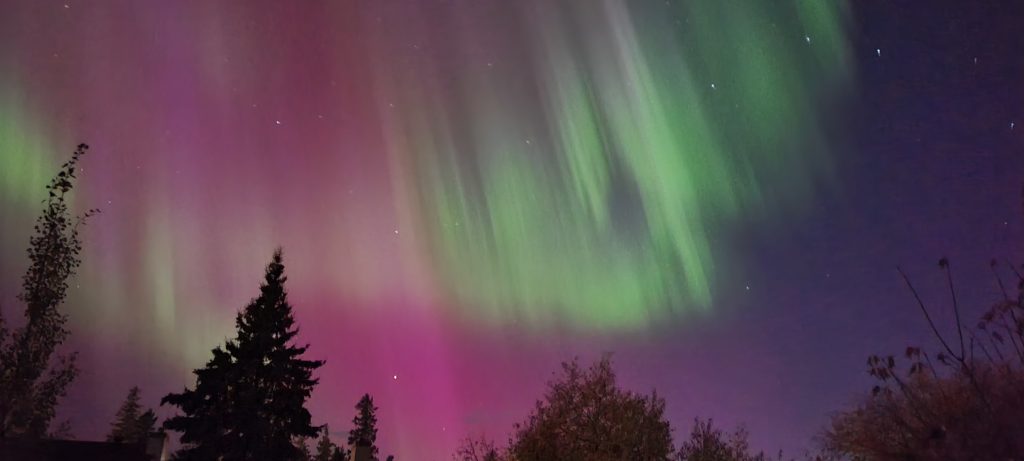FORT MCMURRAY, Alberta — The skies over Fort McMurray and much of North America were illuminated by the aurora borealis as one of the largest geomagnetic storms of the century took place.
The storm was triggered by a coronal mass ejection (CME) from the sun on Oct. 8, which sped toward Earth at more than 4 million kilometers per hour. A CME is a massive release of plasma and magnetic fields from the sun’s corona, expelling billions of tons of solar material, primarily charged particles like electrons and protons, into space. When these particles are captured by Earth’s magnetic fields, they excite gases in the atmosphere, causing the Northern Lights.

The U.S. National Oceanic and Atmospheric Administration (NOAA) classified Wednesday’s geomagnetic storm as G4, the most extreme levels on its scale. The storm caused widespread auroras, visible across all of Canada and deep into the U.S., reaching as far south as Kansas and California.
Though the main part of the CME has passed Earth, there remains a strong likelihood of continued bright auroras throughout the Thanksgiving weekend.
While scientists are still analyzing data from the past 24 hours, many speculate this could be the largest geomagnetic event in the last century.
